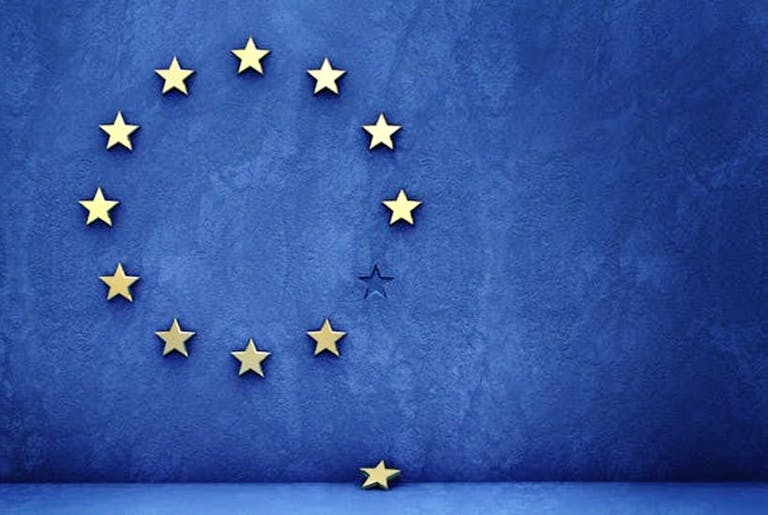Tony Abbott claims in The Spectator this week that in the event of a no-deal Brexit the “difficulties would quickly pass”. Perhaps. I should start by saying that I am relatively sanguine about the medium-term economic effects of leaving without an agreement. But I think it is pretty absurd to suggest that “no deal would be no problem”.
The most immediate political issue would be a certain collapse of the current Government. I know that these days they are no strangers to political chaos down under and Aussie prime ministers come and go with frightening speed, but how could you make a success of Brexit with no majority for the governing party at all?
Because whatever Tony, you or I may think about no deal, a handful of Tory MPs would see it as something they would not put up with. They have said so – repeatedly. In normal times, the loss of a few MPs wouldn’t be the end of days. But ever since our Prime Minister accidentally lost her majority back in 2017, and we were left with a hung parliament, things have been far more precarious, as recent defections have highlighted.
If Theresa May’s Government did fall, and she’s just a few MPs away from having no governing majority, that might not necessarily usher in Jeremy Corbyn – a man whose entire world-view could hardly be more antithetic to Abbott’s or indeed to mine – but it’s a big risk. An alternative could be a cross-party group eventually taking control and pushing through a far softer Brexit or no Brexit at all. Both again are things which presumably Abbott doesn’t want to see, and I certainly don’t.
In economic terms, the medium-term effects of no deal might be relatively minimal. Even Ken Clarke has said that the stories of no food or no medicine are exaggerated. Open Europe found that, if you put aside immediate disruption, the effects over a period up to 2030 could be just 2.2 per cent off GDP growth – and even less if the Government took steps to liberalise its trade.
But things aren’t as simple as Abbott claims. Australia could manage without a trade agreement with the EU because it’s not making automobiles in complex supply chains with Europe – it’s just too far away. It also hasn’t spent the last four and a half decades as a member of the EU with the EU’s legal and regulatory tentacles permeating all aspects of its domestic life. (Precisely, by the way, one of the reasons why I wanted to leave the EU). Australia doesn’t need reminding of this – when we went in to ‘Europe’ it was big rupture in our Commonwealth relations.
Anyway, if Abbott is so keen on WTO-terms trading, why did he jet around when he was prime minister agreeing trade deals with Japan and Korea? Why did he push for the Trans-Pacific Partnership with a dozen countries including the US and Canada? Because Australia clearly does think trade and other agreements are important – and that applies to the EU too. Back in 2008, Oz agreed a partnership deal with the EU covering security, trade and other aspects of cooperation, and it’s now expending plenty of energy trying to upgrade it to a comprehensive trade deal.
Of course, our geography is different from Australia’s. The English Channel is barely 20 miles wide at its narrowest point and we share a land border with an EU nation – Ireland. The EU doesn’t account for 15 per cent of our trade (as in the case of Australia) but nearly 50 per cent. And much of the fastest growing parts of our trade are in sectors which are highly-regulated by the EU and therefore more exposed to no deal.
Compare our relationship with the EU, with Australia’s to New Zealand. Although those islands are a four-hour flight and some 2,500 miles apart – from Australia’s east coast – they enjoy a tight relationship with agreements covering trade, customs and free movement of people. At one stage, they nearly joined a common federation. If Australia has such a deep ‘deal’ with its small and relatively distant neighbour, why is Abbott saying we would be fine without one with the EU27 – a trading bloc of over 400 million people and a regulatory-superpower the economic size of China?
There are a host of other confusions and conflations in Abbott’s piece, but he misses a very crucial overall point. Putting aside all the economics and domestic politics, no deal would mean literally, by definition, a profound breakdown in European relations.
The EU reckon Britain would soon crawl back to the negotiation table to accept punitive terms. They may be right; they may be wrong. It’s possible to imagine something perhaps even more worrying – that politics in the UK takes a profoundly anti-European turn. And that the whole wider cooperation on security, defence and foreign policy that has kept our continent safe is put at risk. Surely that is something none of us should want to see.






Comments